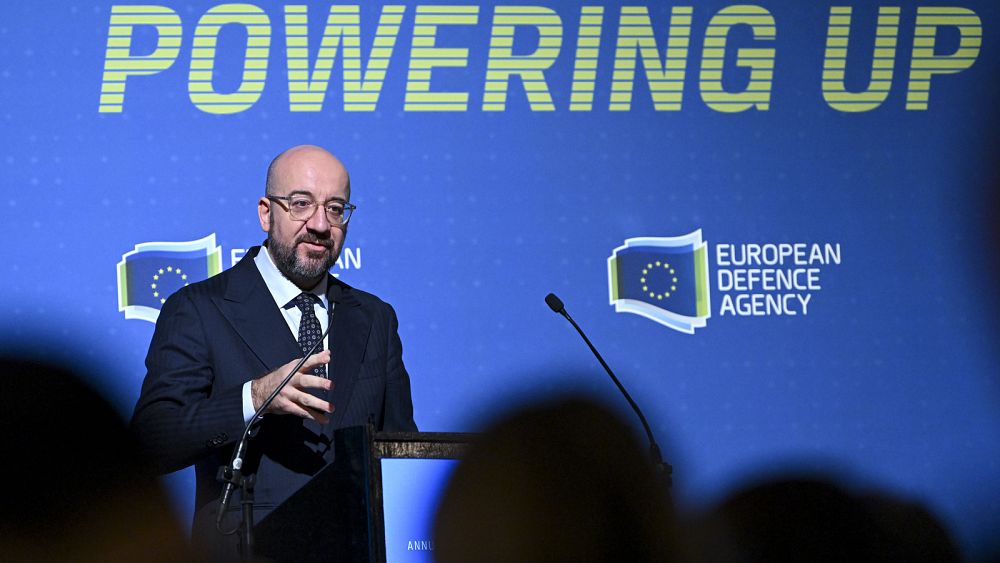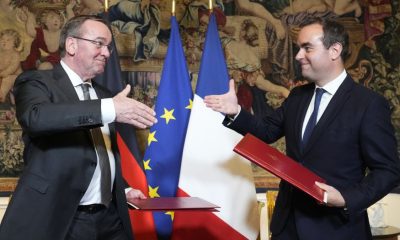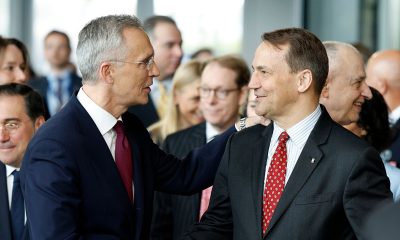General News
EU should go on the cyber offensive in defence overhaul – Charles Michel

The European Union needs a bespoke “cyber force” to beef up its defensive capabilities, according to European Council chief Charles Michel.
Speaking at the annual conference of the European Defence Agency (EDA) on Thursday, Michel pitched a “European cyber force” that would be a “fundamental component” of Europe’s defence.
“It would help us to take a position of leadership in cyber response operations and information superiority, and I believe it should be equipped with offensive capabilities,” he explained.
European Commission chief Ursula von der Leyen also suggested that cyberwarfare should be among Brussels’ tasks – as opposed to member states’ – in the bloc’s defence overhaul.
“We should identify flagship capabilities at European level,” she said. “For instance, capabilities that are European by nature, like the strategic enablers, like cyber capabilities or satellites or strategic transportation.”
Russia’s invasion of Ukraine prompted a spike in EU defence spending and forced the bloc to scrutinise its defence policy.
Brussels has broken new ground by fast-tracking legislation to help pool resources through joint procurement while ramping up investments in the bloc’s defence industry, such as the European Defence Industry Reinforcement via Joint Procurement Act (EDIRPA) and the Act in Support of Ammunition Production (ASAP).
But the bloc has done less to address the threat posed by cyber warfare, often used by the Kremlin to destabilise and destroy critical digital infrastructure both in Ukraine and in EU countries.
Russia’s invasion has been accompanied by large-scale operations in cyberspace. A Kremlin-led attack on satellite Internet connections across Europe was orchestrated just one hour before Russia moved its tanks into Ukraine in February 2022.
Last year, the European Parliament itself was targeted by a pro-Kremlin group in a sophisticated denial-of-service (DoS) attack, on the same day that the parliament voted to proclaim Russia as a state-sponsor of terrorism.
Reports of retaliatory cyber attacks by Ukrainian groups led to Russia warning the West that attacks in the cyber sphere could lead to direct military confrontation.
In April, the bloc announced new plans to shield itself against cyber-attacks, entrusting part of its defence to private companies. But while these plans focus on prevention on response, Michel’s proposed “offensive” capabilities suggest the bloc could consider targeted operations in cyberspace.
Offensive cyber operations are generally considered those aimed at manipulating, disrupting or even destroying critical infrastructure, and Michel’s reference to cyber “force” echoes military factions such as those which already exist in many EU member states.
“Spend better, spend together”
Despite the increase in defence spending since Russia’s invasion of Ukraine, Europe’s arms industry has struggled to keep up with the pace of demand.
Part of the problem is the fragmented nature of the arms market, with EU countries traditionally procuring at national level.
Brussels wants member states to pool their resources to make procurement more efficient and to ensure the bloc can continue supplying Kyiv without depleting its own stocks.
“As long as EU defence companies are structured along national lines, demand will primarily come from their respective national governments. And this leads to a style of production that does not match the geopolitical reality we face,” Michel explained.
Von der Leyen meanwhile explained that “collaborative spending by member states has only slightly improved. It is still below 20%, very far from our goal of 35%.
“On top of this, the latest figures show that additional funds are in large majority spent outside the European Union,” she said. “So we are predominantly buying alone and buying abroad,”
Von der Leyen also suggested EU member states could receive fiscal incentives in exchange for boosted defence spending.
Defence investments “could underpin the extension of a member state’s fiscal adjustment period,” von der Leyen explained, and could be “a relevant factor when we assess whether a member state has an excessive deficit or not.”
“There is room for further targeted and time-limited adaptation to reduce the near-term fiscal efforts for member states that are simultaneously increasing their defence spending,” she added
Source
Disclaimer: No copyright infringement intended. All rights and credits reserved to respective owner(s).
























